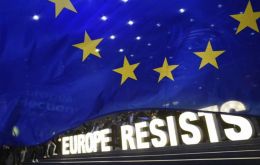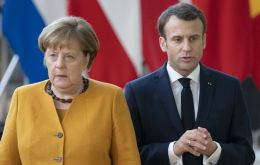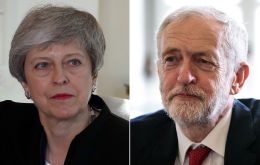MercoPress. South Atlantic News Agency
Tag: EU elections
-
Friday, May 31st 2019 - 09:55 UTC
Trumpism did not sweep across Europe as it did in the US

The best way to describe what just happened in the European Union elections is to say that the choices are getting clearer ― and a lot of people are realizing which side they are on. The elections to the EU Parliament held last week in 28 European countries ― including the United Kingdom, since three years after the Brexit referendum, it still hasn't managed to leave ― was the second-biggest democratic exercise in the world.
-
Wednesday, May 29th 2019 - 08:28 UTC
Macron and Merkel disagree on EU's key jobs following parliamentary election

France and Germany have disagreed on who should take one of the EU's key roles as leaders from the bloc met following parliamentary elections. The vote saw the big centrist blocs lose their majorities with Greens and nationalists gaining ground.
-
Wednesday, May 15th 2019 - 09:54 UTC
May and Corbyn Brexit legislation will be put before parliament first week of June

Prime Minister Theresa May's government will publish draft legislation in the first week of June that would allow Brexit to proceed if approved by parliament, a Downing Street spokesman announced on Tuesday.
-
Wednesday, May 8th 2019 - 09:57 UTC
UK “regrettably” has to participate in the EU elections, admits Mrs. May deputy

The United Kingdom will have to hold European elections, despite hopes from the government a Brexit deal would be done by then, says the PM's de facto deputy. The vote is due on 23 May, but Theresa May said the UK would not have to take part if MPs agreed with a Brexit plan first.
-
Wednesday, April 17th 2019 - 09:49 UTC
Dissident Labour and Tory MPs register as “Change UK”, and plan to participate in EU elections

The Electoral Commission has approved The Independent Group's application to register as a political party. The group - made up of 11 former Labor and Tory MPs who their parties in February, will become Change UK. The approval means they can put forward candidates in the European elections due to take place on 23 May - if the UK has not left the EU by then.
